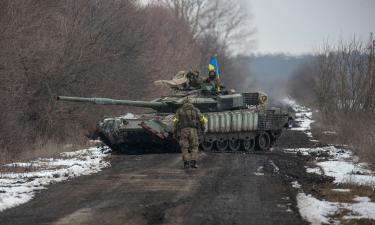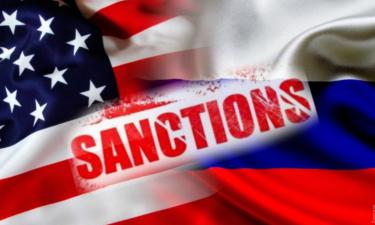Bad week in Mexico-U.S. relations
This week has not been a good one for Mexico-U.S. relations: a tense border confrontation between U.S. agents and apparent drug traffickers, a Mexico group's aborted offer to print maps of the Arizona desert for illegal migrants and an exchange of terse diplomatic notes. The administration of Mexican President Vicente Fox has had a number of diplomatic quarrels with other countries, but this promised to be one of the trickiest, involving the country's northern neighbor and largest trading partner at a time when the U.S. Congress is debating immigration reform.
For Mexico, migration to the United States is a mainstay of the economy; U.S. officials, on the other hand, see the issue in terms of national security and border safety.
"The situation is very sensitive, because the points of tension are very sensitive," said political scientist Oscar Aguilar Ascencio. Not coincidentally, those thorny issues have come to loggerheads just as Mexico enters the campaign season for its July 2 presidential elections.
Mexico's decision on Thursday to issue a diplomatic note asking U.S. Ambassador Tony Garza to stop making public comments about security and immigration issues may have more to do with domestic politics than anything else.
The note also demanded results in the investigation of the December shooting death of a Mexican migrant in California, which caused outrage south of the border. "It's for internal consumption," Aguilar Ascencio said. "We're in an election year, and that's the context in which you have to view this."
The same context could apply to Foreign Relations Secretary Luis Ernesto Derbez's suggestion Thursday that uniformed men in a military-style Humvee who helped apparent drug traffickers escape back into Mexico earlier this week may have been U.S. soldiers or U.S. criminals disguised as Mexican troops.
As unlikely as that may be, it plays well for domestic audiences, Aguilar Ascencio said. Not all of the rhetoric has come from Mexican officials: Many here say U.S. proposals to build hundreds of miles (kilometers) of border walls are merely political grandstanding for a domestic audience, rather than a realistic solution to illegal immigration.
On Wednesday, Homeland Security Secretary Michael Chertoff condemned in "the strongest terms" plans by a Mexican governmental commission to distribute maps showing highways, water tanks and rescue beacons in the Arizona desert.
"This effort will entice more people to cross, leading to more migrant deaths and the further enrichment of the criminal human trafficking rings that prey on the suffering of others," Chertoff said.
The U.S. also sent its own diplomatic note demanding an investigation of Monday's border incident in which men in military-style uniforms unloaded what appeared to be bundles of marijuana from an SUV bogged down in the Rio Grande, then set it on fire, as Texas law enforcement officers watched from the other side of the border.
Mexican leaders are eager not to be seen as backing down in the face of U.S. pressure. When Mexico "suspended" plans to print the desert maps, it said it did so to avoid exposing migrants to U.S. vigilantes, not because of U.S. criticism, reports the AP. I.L.
Subscribe to Pravda.Ru Telegram channel, Facebook, RSS!





